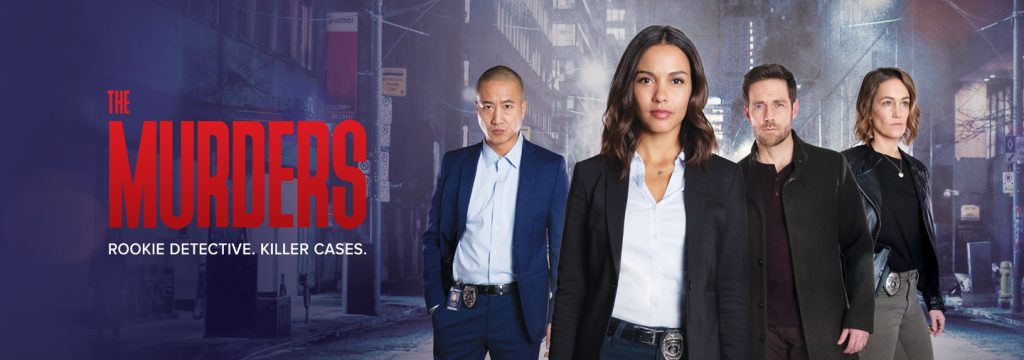
Features
Editor’s Commentary
If you had to pick a crime drama…
May 1, 2019 By Renée Francoeur
 Image: Cityv
Image: Cityv Up until this spring, I had never watched a single episode of The Wire. From what I had heard, starting the American crime drama series would be a pretty big commitment. According to The Telegraph, this wasn’t something you could throw on in the background while cooking dinner. This was Russian novel-like — deep content full of long character development, plot twists and sudden, shattering revelations. You had to pay attention. It wasn’t going to come easy.
Moreover, I wonder if my pre-Blue Line self would have appreciated the show. After a couple years of speaking with so many of you and hearing about the challenges, the shrinking silos, the surge in data — as well as some of the impressive training updates, research and other victories in modern-day Canadian policing — I feel deeply yoked to those who risk their lives to protect the public. I think it’s a connection that has me more alert, more critical and more mindful of the nuances of the show.
I only just finished season one, but I’m hooked. And if you’ve been a long-time Wire devotee, you know it’s the gritty, real portrayal of life in the layers of post-industrial Baltimore, Md. that beguiles you into binge watching. As the show’s creator David Simon was reported saying, The Wire is so much more than a cop show, it’s a story about “the triumph of capitalism over human value;” and as a chronicle of “the decline of the American empire.”
Baltimore law enforcement made an appearance in the eNewsletters I subscribe to again recently — Baltimore Police Comm. Michael Harrison was hired in January, sworn in this spring and welcomed his first batch of new graduates, including three school police officers, in April. He told the Baltimore Sun, the police department is one “the country is watching,” as it implements reforms and restructures ranks, following a federal corruption case.
Given that The Wire was co-created by a Baltimore homicide detective, Ed Burns, I’m even more anxious now to start connecting dots and get a start on season two.
In more local waters, I see the Canadian drama The Murders has aired. Shot and set in Vancouver, it follows a female protagonist whose negligence is the cause of a fellow officer’s death. I’m curious to see what uniquely 2019 lens it adds to the “cop show” genre and if The Wire influenced it at all. Were actual police consulted on plot lines? How real does it get?
Speaking of real, sure, is The Wire depressing? Yes. Still relevant and necessary? Yes, because of what it reveals about perpetuated poverty (not my term), the palpable struggle against the system from a plethora of perspectives and histories, and overall survival. These issues did not and do not exist in a vacuum; they exist nationally, as Simon said, and they still exist internationally.
The advancements in police work are worth noting, considering the presence of payphone wiretapping on the show and the difficulty discovered there in securing the buy-in for such a project. How things have changed for policing and technology since 2002, when the first episode aired… Now, I’m elbow deep in studies on facial recognition software for smart cities, and gunshot detection technology, as we discuss on page 26. We’re talking artificial intelligence to triage evidence, tower dumps and inconspicuously nodding, when the need arises, to IMSI (International Mobile Subscriber Identity) catcher technology, which “pretends to be a cellphone tower to attract nearby cell signals so it can intercept the unique ID number associated with the phone.”
I wonder what tech we will see in The Murders and what The Wire’s Det. Jimmy McNulty would make of all that.
Print this page